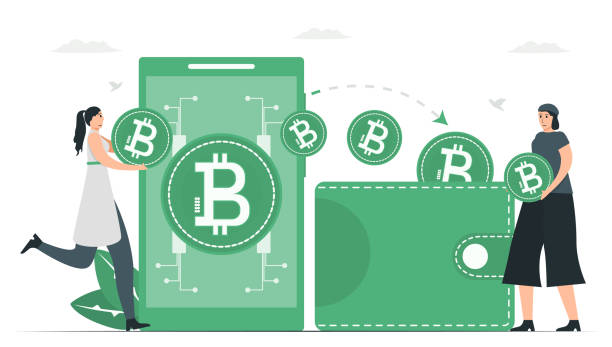Bitcoin wallets – how to pick the perfect one?

Bitcoin is devoid of a physical sense, and instead of being stored in a locker or bank account, bitcoin is stored in a virtual storage space named an e-wallet or crypto wallet. Bitcoin wallets offer much better features as a cryptocurrency exchange for storing bitcoins. Furthermore, always choose a reputed bitcoin trading platform before investing, you may visit the pattern-trader.app and start trading.
Thus, it is essential to consider a few things before buying a bitcoin wallet, as there are thousands of wallets in the online market. It is possible to store bitcoins in many wallet types, but only a few are sufficient to accommodate financial needs. Therefore, deciding on the perfect bitcoin wallet requires deep and precise knowledge of using it. However, before getting into that step-by-step process, you must attain an overview of the bitcoin wallet.
What Exactly A Bitcoin Wallet Is?
Bitcoin wallets differ from other types of wallets due to their unique nature as they have no physical form. Instead, a bitcoin consists of public and private keys (addresses). Every wallet requires two sets of keys: private and public. A private key is a key that identifies your wallet, while the public one publicly identifies you.
Every time you deposit or withdraw money, a copy of your payment history is also recorded in their respective record books. Both keys must be public for verification when you want to share your transaction details with someone else.
How to choose the best bitcoin wallet?
Choosing the perfect bitcoin wallet depends on your financial needs. A private wallet is known as cold storage as it is entirely anonymous. These wallets are created offline, and after the creation process, it requires a password to open the computer-generated private keys.
The primary purpose of using a cold storage bitcoin wallet is to protect the private keys from hackers by keeping them offline from public access. Cold wallets make it difficult for hackers to steal your bitcoins. An ordinary account is a hot wallet, meaning an account can be accessed online without password protection.
Security Protocol of bitcoin wallet:
You can get a complete overview of the wallet’s security through the reviews that actual users have published. In addition, the wallet has a two-factor authentication system which means it uses two types of passwords, i.e., a personal password and a private key, to secure your account. A bitcoin wallet with an additional feature of multi-device access helps you access your account on various devices using passwords such as PIN and passphrase.
Multisignature:
Multisignature is a security protocol that helps provide encryption, signing, and verification. Therefore, it is one of the most secure methods to protect your account from hackers. It is essential as not everyone has the same access to your private keys. Furthermore, it helps maximum protection of your bitcoins by confirming each transaction before it is added to the blockchain network.
Check the user interface:
Another crucial aspect of choosing the best bitcoin wallet is the user interface. Pick a type of wallet that makes it easy for you to navigate and offers a good user experience. Also, it should provide you with secure access to your bitcoins regardless of your operating device or web browser. Before choosing an appropriate bitcoin wallet, it is advisable to look for user reviews, type of customer support, fee structure, and ease of use.
Check whether it allows you to purchase bitcoin or not:
The reason for looking for such a feature is to avoid unnecessary delays and failures during the transaction process. If you choose a wallet that does not support your preferred platform or charges higher fees, nothing but trouble will follow.
The process to protect your bitcoins:
You can protect your bitcoins by keeping them in an offline hard drive that requires a password whenever you want to access it. This offline hard drive must be in a secure place such as a safe deposit box or home.
Two broad categories of bitcoin wallets:
Cold wallet:
The wallet remains offline without access to a computer or Internet with a password that allows you to create a new address when needed are hardware wallet. Examples of Cold Wallets are Ledger Nano S and Trezor.
Hot Wallet:
This online wallet offers public access to the bitcoin account through software, mobile, or desktop application where you can make payments and use bitcoins for various services. Examples of Hot Wallets: Coinbase, Blockchain, Exodus, and Electrum Wallet.






